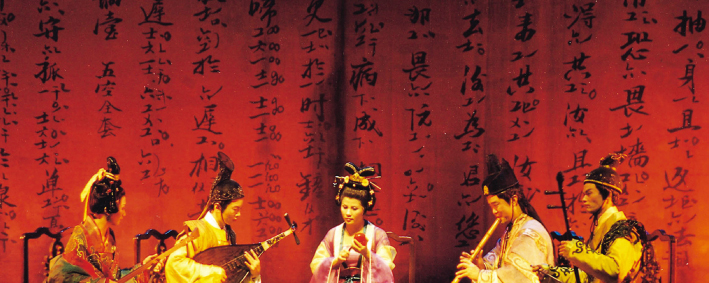 |
CCHU9013 Arts and Humanities
|
Course Description
Welcome to the world of cultural heritage! This course examines the background, debates, policies, and politics of cultural heritage from interdisciplinary perspectives, particularly through the sociological and anthropological lens. UNESCO includes a wide range of definitions of cultural heritage, such as ‘tangible’ and ‘intangible’ heritage. All categories of cultural heritage are now regarded as essential to community building, proper governance, and economic development. The preservation, conservation, destruction, demolition, listing and delisting of heritage sites and historic documents have regularly attracted media and public attention, commercial interest, and contention among different communities. By introducing thematic issues through case examples from Hong Kong and other places around the world, students will be introduced to basic readings on cultural heritage, conservation policies, heritagization, tourism industries and the latest trends of heritage preservation.
There are four key themes in our course. First, we will explore the meaning of cultural heritage, and highlight some general issues and approaches to the study of heritage. Second, we will critically examine the socio-cultural significance of cultural heritage with different case examples. Third, we will consider the management of cultural heritage, including different preservation and conservation methods, as well as the politics behind the making and protection of heritage. Finally, we will look at the uses of cultural heritage in urban development and tourism. Together, we will explore our cultural stories, rituals, architectures, and ways of living. Come learn with us the cultural richness of Hong Kong and beyond.
[An optional field trip will be arranged during Reading Week.]

Course Learning Outcomes
On completing the course, students will be able to:
- Connect the basic concepts and theories pertaining to cultural heritage using appropriate academic language.
- Critically examine the preservation and conservation of cultural heritage in Hong Kong and other Asian societies using relevant theoretical knowledge.
- Demonstrate an awareness of the need for the sustainability of cultural heritage in contemporary society.
- Explain the significance of cultural heritage in everyday life and society from historical and contemporary perspectives.
- Evaluate the relationship between intangible cultural heritage, and the tourist industry in the local and global environment.
Offer Semester and Day of Teaching
First semester (Wed)
Study Load
| Activities | Number of hours |
| Lectures | 24 |
| Seminars / Tutorials | 10 |
| Reading / Self-study | 20 |
| Assessment: Essay / Report writing | 30 |
| Assessment: Presentation (incl preparation) | 40 |
| Assessment: Homework | 8 |
| Total: | 132 |
Assessment: 100% coursework
| Assessment Tasks | Weighting |
| Tutorial presentation and participation | 20 |
| Group project | 50 |
| Written assignment | 30 |
Required Reading
- Berenfeld, M. L. (2008). Climate change and cultural heritage: Local evidence, global responses. The George Wright Forum, 25(2), 66-82.
- Bourdieu, P. (1997). The forms of capital. In A. H. Halsey, H. Lauder, P. Brown & A. S. Wells (Eds.), Education: Culture, Economy and Society (pp. 46-58). Oxford: Oxford University Press.
- Cable, M. (2008). Will the real Dai please stand up: Conflicting displays of identity in ethnic tourism. Journal of Heritage Tourism, 3(4), 267-276.
- Chan, S. C. (2010). Food, memories, and identities in Hong Kong. Identities: Global Studies in Culture and Power, 17, 204–227.
- Chew, M. M. T. (2009). Cultural sustainability and heritage tourism development: Problems in developing bun festival tourism in Hong Kong. Journal of Sustainable Development, 2(3), 34-42.
- Crane, S. A. (Ed.) (2000). Museums and Memory. Stanford: Stanford University Press. [pp. 1-13 “Introduction: Of museums and memory”]
- Dimache, A., Wondirad, A., & Agyeiwaah, E. (2017). One museum, two stories: Place identity at the Hong Kong Museum of History. Tourism Management, 63, 287-301.
- Harrison, R. (2013). Heritage: Critical approaches. New York: Routledge. [pp. 1-11, 14-20]
- Ku, A. S. M. (2010). Making heritage in Hong Kong: A case study of the central police station compound. The China Quarterly, 202, 381-399.
- Kuah, K. E. (2016). Heritagizing lifestyle in Hong Kong: social capital and cultural memories of the Tai O fishing community. In K. E. Kuah & Z. Liu (Eds.), Intangible Cultural Heritage in Contemporary China (pp. 23-41). Milton Park, Abingdon, Oxon: Routledge.
- Lee, K. H., & Wong, D. T. K. (2017). Chinese popular music as a musical heritage and cultural marker of the Malaysian Chinese. International Journal of Heritage Studies, 23(10), 989-1001.
- McDowell, S. (2008). Heritage, memory and identity. In B. Graham & P. Howard (Eds.), The Ashgate Research Companion to Heritage and Identity (pp. 37-53). Burlington, VT: Ashgate Pub. Co.
- Ng, M. K. (2018). Sustainable community building in the face of state-led gentrification: the story of the Blue House cluster in Hong Kong. Town Planning Review, 89(5), 495-512.
- Peoples, J., & Bailey, G. (2017). Humanity: An introduction to cultural anthropology (11th ed.). Australia: Cengage Learning. [pp. 10-30]
- Silberman, N. A. (2020). Good-bye to all that: COVID-19 and the transformations of cultural heritage. International Journal of Cultural Property, 27(4), 467-475.
- Song, J. (2020). Global Tokyo. Springer Singapore. [Chap. 1 “Introduction: Unlocking A Global City” (pp. 1-30)]
- Yahaya, A. (2006). The scope and definitions of heritage: From tangible to intangible. International Journal of Heritage Studies, 12(3), 292–300.
- Zhang, Y., & Wu, Z. (2016). The reproduction of heritage in a Chinese village: Whose heritage, whose pasts? International Journal of Heritage Studies, 22(3), 228-241.
Course Co-ordinator and Teacher(s)
| Course Co-ordinator | Contact |
| Professor T. McDonald Department of Sociology, Faculty of Social Sciences |
Tel: 3917 1105 Email: mcdonald@hku.hk |
| Teacher(s) | Contact |
| Dr S.W.L. Cheung Department of Sociology, Faculty of Social Sciences |
Tel: 3917 2064 Email: stevecwl@hku.hk |

